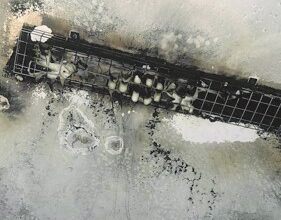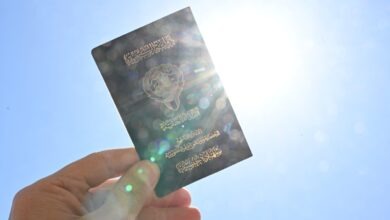Global efforts, regulations strengthen to combat marine pollution from oil, ship waste

Marine pollution has become a critical global issue due to its damaging effects on marine life, natural resources, and recreational facilities such as beaches, resorts, and desalination plants.
One of the primary causes of this pollution is oil discharged from tankers and underwater pipelines transporting oil between countries.
To address this problem, many nations have come together to establish international agreements aimed at limiting oil pollution in seawater.
The first such convention was signed in 1954, but significant events like the 1967 Tory Canyon oil spill off the British coast accelerated amendments to this treaty.
The updated 1969 convention and the improved 1973 convention introduced strict prohibitions, such as banning oil discharge from tankers over 500 tons within 100 nautical miles of the coast and limiting oil discharge to no more than 60 liters per nautical mile with an oil concentration below 100 parts per million.
Many countries have supplemented these international agreements with national laws that impose strict penalties, including fines and imprisonment, for violations that pollute territorial waters, coastlines, and ports.
As shipbuilding advanced, particularly with the introduction of giant oil tankers, the original 1973 convention required updates. This led to the adoption of the International Convention for the Prevention of Pollution from Ships (MARPOL) in 1978, which came into force in 1983 and was further amended by a 1997 protocol that added new regulations, effective from 2005.
MARPOL includes six technical annexes, each addressing specific sources and types of marine pollution. Annex I covers pollution from oil leaks and requires tankers to have double hulls and systems to separate oil from cleaning water before discharge.
Annex II regulates harmful liquid substances carried in bulk, prohibiting their discharge unless ports have proper reception facilities. Annex III deals with harmful substances in packaged form, establishing rules for packaging, labeling, and documentation.
Annex IV regulates the disposal of sewage, forbidding discharge near ports and requiring onboard treatment systems. Annex V governs garbage disposal, setting rules for disposing of food waste, plastics, and other refuse at certain distances from land. Lastly, Annex VI focuses on air pollution from ship engines, limiting sulfur content in fuel oil and requiring cleaner combustion to reduce harmful emissions.
These conventions and annexes collectively aim to reduce marine pollution caused by oil spills, harmful substances, waste discharge, and air emissions from ships.
Enforcement is strengthened through international cooperation and national legislation, but the ongoing development of shipping technology and marine activities requires continuous updates to these regulations to safeguard marine environments worldwide.













